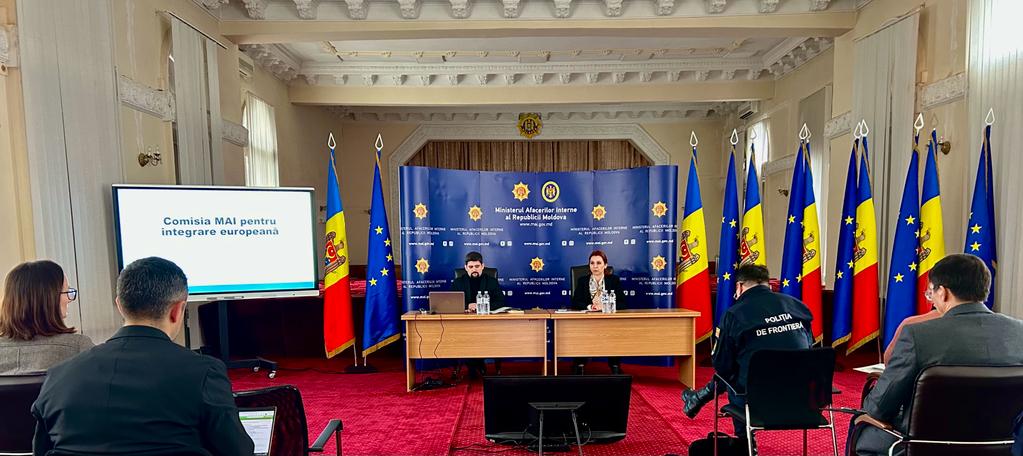Taking into the consideration the commitments undertaken in the dialogue with the European Union, as result of granting EU candidate country status, based on the recommendations made by the European Commission on the questionnaires submitted by the Republic of Moldova, the Ministry of Internal Affairs established the Committee for European integration, which will manage core measures for raising the level of readiness in the process of accession and alignment with EU legislation.
During the meeting, the members of the Committee discussed the Roadmap, which sets out the priority actions for European integration for 2023 in the field of internal affairs (RMEI), as well as the proposed mechanism for the implementation of the RMEI, so that the actions are fully, qualitatively and timely implemented.
In this regard, it was decided to create sectoral working groups, which will ensure the implementation of the identified actions and will produce monthly reports, which necessarily will describe the measures undertaken and the progress achieved, the shortcomings identified and the solutions formulated to improve the implementation process of the Roadmap actions.
Therefore, according to the Roadmap, the following priority objectives have been identified:
Strengthening the fight against organized crime, based on detailed threat assessments, increased cooperation with EU regional and international partners and better coordination of law enforcement authorities;
Increasing public safety at home, in the community and in public places;
Strengthening the integrated migration management system based on safe, orderly and regulated migration, in the light of human rights observance;
Strengthening the integrated state border management and alignment with Community requirements for the application of the Schengen acquis provisions;
Improving the effectiveness of emergency and exceptional situation prevention measures by increasing operational and response capacities;
Taking over European best practices to strengthen the resilience of the education and training process within the MIA;
Automating information, working and digitalized service delivery processes to increase citizens’ trust and security;
Reducing areas and numbers of people vulnerable to corruption by strengthening the integrity climate and unitary ordering of powers to prevent and fight corruption within the internal affairs system.
Thus, the Ministry of Internal Affairs aims to achieve these objectives by carrying out complex missions and having effective and professional collaborations with external partners.




